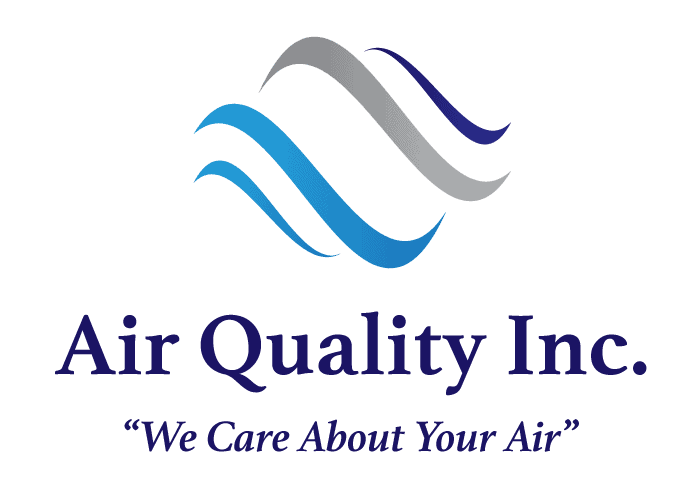When your child comes home from school with a cough or sniffle, you may not be surprised, knowing how easily germs can spread in an elementary classroom.
However, when symptoms persist, you may begin to wonder if it’s really germs that are making your child sick.
You, along with many other Virginia Beach parents may be surprised, and frankly upset to learn that your children may be suffering due to the poor indoor air quality of your child’s school.
Admittedly, it’s hard and horrible to imagine that your child may be in a toxic environment for multiple hours out of the day, causing respiratory issues, asthma attacks, and health problems like these even after just a few minutes in the poor air quality environment.
The sad reality is that mold problems in your child’s school may actually be the main culprit of his ongoing cold-like symptoms.
Mold in Virginia Schools
Coughs that seem linger for months, even with treatment, may be an indicator that your child is experiencing an allergic reaction to mold in the home or classroom.
Unfortunately this was the case in Walton Elementary School in Prince George County, Virginia after a record rain fall.
Local news outlet, WHSV-TV3 reports on the story; “Of Virginia’s 2,000-plus public Schools, 40 percent are more than 50 years old. The state does not have a law requiring older schools to be tested [for mold]. Teachers and parents generally have to sound the alarm for a test to be initiated.”
In this particular case, the school was shut down and thoroughly cleaned for two days due to poor indoor air quality.
One thing is for sure; this school is not alone in dealing with mold related poor indoor air quality issues. Yes, multiple school districts and colleges in Virginia and beyond have suffered similar mold concerns recently. Mold in schools is a nationwide issue.
Danger of Mold in Classrooms
Scientists are still scrambling to quantify and qualify the overall short and long-term effects that exposure to mold can have on children and adults alike. Mold has been shown to especially aggravate the respiratory functions of asthmatic children.
One 2013 study dubbed Exposures to Molds in School Classrooms of Children with Asthma reveals that during their experiment “There were 180 classroom air samples collected from 12 schools.” With what result? “Mold was present in 100% of classrooms.”

With such widespread exposure to mold, what dangers actually exist, and what symptoms pair with breathing air contaminated by mold?
The Environmental Protection Agency’s Fact Sheet on Mold in Schools explains “When mold grows in school buildings and portable classrooms, some staff and students, particularly those with allergies or respiratory problems, may report adverse health effects.” The mold-related symptoms may include “irritation of the eyes, skin, nose, throat, and lungs of both mold allergic and non-allergic people.”
Causes of Mold in Schools
The growth of mold is a time-sensitive issue. Mold is a direct result of uncontrolled moisture levels in the air of a building.
High moisture levels in a school building can be a result of inadequate or poorly maintained HVAC systems (these systems are often turned down or off when class is not in session, leading to unregulated temperature and humidity), increased moisture due to maintenance tasks such as floor cleaning and painting, or simply because the school is located in a highly humid environment such as Virginia.
Another, perhaps more obvious, cause for mold growth is water damage. The EPA expounds on the fact that roof and plumbing leaks, condensation and excess humidity as well as delayed or insufficient maintenance due to budget and other constraints can very quickly lead to moisture and mold problems which, in turn, lead to poor air quality.
When water damage has been has been sustained on a building, especially in the case that the school district is unaware the water damage has occurred, mold can quickly grow in the damp area, if not promptly addressed.
Complaints of Mold Problems in Virginia Schools and Nationwide
The problem is that all too often, mold issues are not dealt with until there have already been numerous complaints from teachers, parents, and students suffering from the effects of the poor indoor air quality.
What can be done to kick off the process of ridding mold from schools?
Before the mold can be remediated, the first step is to test for mold. Professional mold testing can help determine the nature and scope of the school’s mold problem. This important first step is crucial to revealing the current state of a school’s indoor air quality and mapping out how to improve it.
CBS 6 news channel reports that the Prince George Elementary School recently opted for a school closure to test for mold and clean after receiving many complaints from concerned parents reporting children experiencing coughing and mold allergies.
This concern is echoed by what one mother of two whose children attend the school stated after acknowledging her relief that the testing had already begun, “I just wish they would have done it 4 weeks ago”.
Sadly, the occurrence above in Virginia is by no means an isolated problem. Consider, for example, the recent experience of our neighbors a couple of states away in Arkansas.
Throughout Arkansas, there have been thousands of mold-related complaints from parents and staff according to a Live 5 News investigation.
Recent discoveries of mold behind walls has been causing headaches, earaches, chest pains, and itchy eyes, even to the point that one teacher received a doctor note stating that she shouldn’t return to school until the air quality had improved.
State Representative Chandra Dillard was interviewed about the problem. She observed “Nobody wanted to deal with asbestos we finally realize the impact of health on it and now we know how to remediate that. I think this may be Mold’s time because it is getting more pervasive.”
Certainly the problem of air quality is not something to take lightly. One of the school districts reported on in Arkansas was asked to do air quality checks, and rightly so in view of the dangers of leaving mold problems unchecked.
Mold is a Public Health Threat
Testing for Mold in Schools
Life indoors can inevitably lead to these unfavorable cases of suffering from poor indoor air quality because of increasing age of buildings, lack of maintenance, and uncontrollable weather conditions, and the like. It’s nobody’s fault, it is just a fact of life.
Although some symptoms may only be noticeable to those with asthma or weakened immune systems, sooner or later, the negative effects spread to everyone, regardless of how good our health may seem at the time.
Regardless, why should children and adults have to suffer first before enjoying clean and safe air quality again?
The answer is:
They don’t have to!
The key is high-quality, professional indoor air quality testing. If schools were to invest in professional mold testing before a problem arises (or at least as soon as one report of allergies is made), it could quickly nip any growing mold problem in the bud and prevent countless more from experiencing symptoms. Mold is dangerous and not to be ignored!
Operating out of Virginia Beach and Richmond, Air Quality Consultants is ready to help get straight to the source of your schools’ indoor air quality problem. With decades of experience under our belt paired with best-in-the-business technology, we will expertly pick-up on any signs of dangerous mold in schools before the life quality of students and teachers is compromised.
You don’t have to wait for the bad symptoms to start. For the peace of mind for yourself and your child, let us do a quality mold inspection today. Your school can breathe easy!
Request a commercial mold test quote today!




